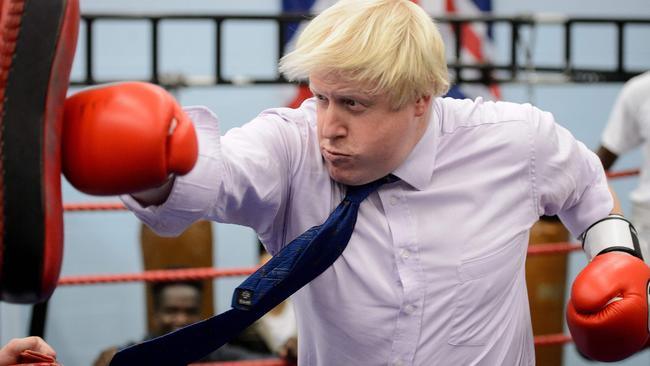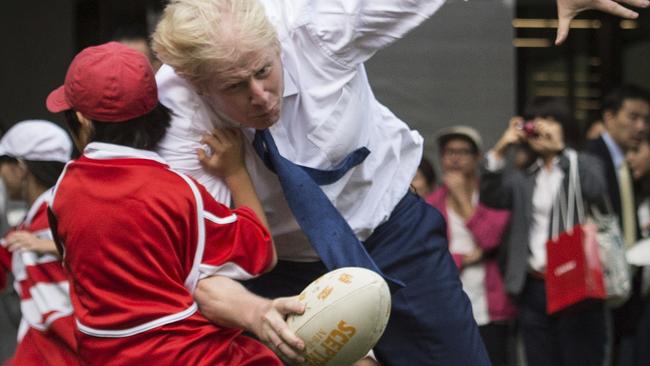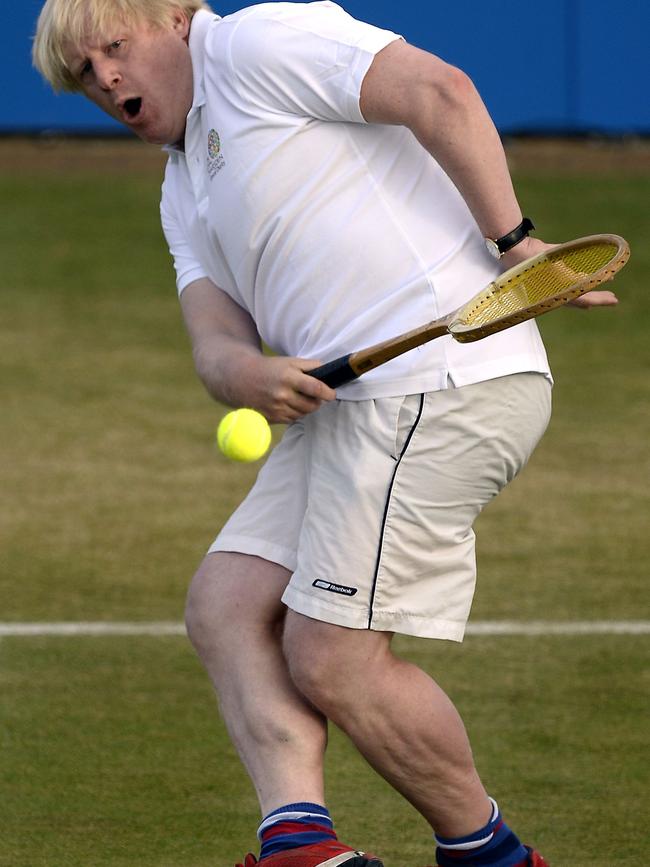It’s all in the message. But what is Johnson’s message?

Seven years after he wrote that quip in his diary, the joke is on Laws — and the rest of Britain.
Johnson has made it to the top through a combination of charm, political nous and ruthlessness. He spent years cultivating an air of rumpled silliness, which looks like authenticity to many Britons. An opinion poll in September 2012 (when Johnson was mayor of London and still illuminated by the Olympic flame) showed he was by far the country’s most respected politician.
He was the biggest star of the campaign to leave the EU — which probably helps to explain why he signed up for that campaign rather than the opposite one. Having failed to become leader of the Conservative Party in 2016, he set out to undermine the woman who did.
Although it is hard to remember now, Theresa May was seen as a good person to lead Britain into negotiations with Europe. Though not publicly charming, she is tough. During a long stint as home secretary, she earned a reputation among her cabinet colleagues for bull-headedness.
She launched into the talks just as the Brexiteers wanted, laying down bold “red lines”, appointing Leavers to key negotiating positions and, fatally, starting the clock on Britain’s departure before the country had worked out what it wanted. Inevitably, she ended up compromising and conceding.

In Johnson’s world, there is seldom any need for compromise. Not because he believes that every negotiation must end in defeat for one side, but because he is uninterested in details. He stepped down as foreign secretary last year in order to oppose Mrs May’s deal. His resignation letter argued that Britain had scored a bad deal because of its “needless self-doubt” and chuntered about the dangers posed to female cyclists by trucks — a problem that he inaccurately blamed on the EU. The combination of grand assertion and erroneous facts is typical of the man.
It is likely that May’s deal would never have passed the House of Commons. Her majority was too small, and her opponents (both in her own party and in the Democratic Unionist Party) too dug in against it. But Johnson’s cheerleading against the deal guaranteed an enormous defeat, and accelerated May’s departure. From there, it was only a matter of seeing off a clutch of less famous contenders, and the top job was his.
It is hard to know what kind of prime minister he will be. The problem is not that Johnson has left no clues in his writing or his past behaviour. It is closer to the opposite: he has left so many clues, which are often contradictory, that we are hardly the wiser. He is a pro-business tax-cutter who is reported to have said “f..k business”, a supporter of immigration who insults women in burkas.
Studying his political circle does not help, because Johnson does not have one. When he was elected mayor of London for the first time, he struggled to think of people to appoint to the important jobs. Even his brother, MP Jo Johnson, profoundly disagrees with him about Europe, though he is decent enough to pretend otherwise.
One analogy can be ruled out. Johnson is not, as is sometimes said, a British Donald Trump. To be sure, he shares with the American President a gift for reading the public mood, an addiction to attention and a shameless dishonesty. But he lacks Trump’s authoritarian instincts, racism and persistent cruelty. He is a social liberal by temperament, broadly relaxed about the fluid, open country that Britain has become.
His shambolic, showboating style is not just a way of getting his message across. Often, it is all the message he has.

The optimistic case for Johnson is that he will not have to bother too much with details or facts in 10 Downing Street. He can bumble around engagingly while flunkeys work out how to turn his instincts into policies. This approach worked, more or less, when he was mayor of London.
But being Prime Minister is not remotely like being mayor of London. You have to make much bigger decisions, and your opponents are far more numerous and powerful. The Conservative Party has a tiny majority in parliament. Assuming Labour remains united against the government, there are more than enough Tory rebels on the hard-Brexit wing and the moderate, Mayite wing to scupper Johnson’s plans. Neither EU negotiators nor Democratic Unionist Party MPs are likely to prove susceptible to his charms. “Do you look daunted? Do you feel daunted?” he asked a room full of Conservatives during his acceptance speech. They didn’t exactly roar “no”.
It is likely to be a miserable spell as Prime Minister, with just one upside. The new leader of the Conservative Party will not have to deal with a talented, ambitious troublemaker named Boris Johnson.



“I can’t imagine Boris in charge of a whelk stall, let alone the economy and nuclear weapons!” So David Laws, then a Liberal Democrat MP, dispensed with the ludicrous notion that Boris Johnson might become prime minister one day.